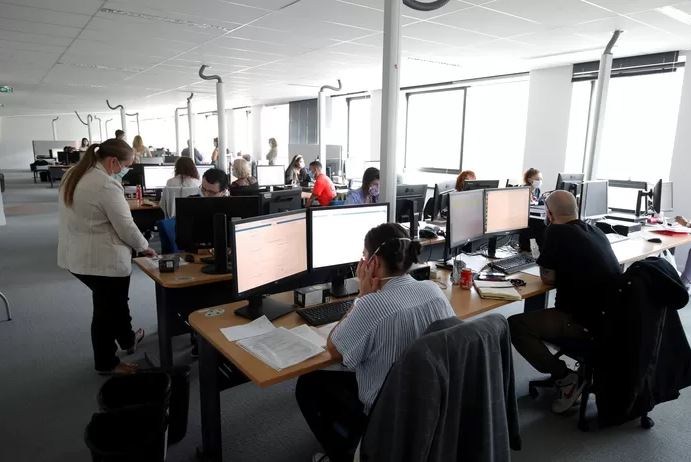The Flemish Agency for Care and Health has vowed to take on additional staff in response to pleas from general practitioners that they are being burdened by the failing contact tracing system.
On Monday evening, the general practitioner's association Domus Medica argued that contact tracing must be improved and that the info line for coronavirus measures must once again be expanded, as they can't handle the influx of questions about coronavirus tests and high-risk contacts.
"For a few weeks now, with the fourth wave increasing, we have been overwhelmed by the speed of it all," Stefan Teughels of the Domus Medica GP Association told VRT News.
As a result, Teughels warns that the care of ordinary patients is in jeopardy and said that several GP surgeries were unable to answer all calls this weekend. "It was total chaos again this weekend. As a result, people go to the emergency departments, and then it starts all over again."
In response to this complaint, the Agency for Care and Health announced that in the coming month, 336 net full-time employees will be added to the contact tracing, which comes down to the additional deployment of 558 new staff members.
Related News
- More than 2,000 Covid-19 patients in hospitals
- Next Consultative Committee meeting planned for 19 November
The agency had planned to scale up employment in mid-October, however, it said this is going less smoothly than expected due to the shortages in the labour market.
"Finding people in the tight labour market and also training them to do contact investigation takes time," the agency's spokesperson Joris Moonens said.
GPs bearing the burden
The agency will be extending the contact centre's working hours to 21 hours. "We have also temporarily put the home visits to people we cannot reach by phone on hold so that the field officers can also call people."
Normally, someone in high-risk contact with an infected person would get a text message saying that they will be contacted by a contact tracer within 48 hours to get a coronavirus test code. However, this system by the Flanders Government is understaffed, meaning many people don't get contacted.
"Many people are now quicker than the contact tracers. They call their close contacts themselves to say that they are positive. And of course, those people don't wait for the contact tracing, but call their GP to ask to be tested as well," Teughels said.
The Federal Government has set up a website where people with mild Covid-19 symptoms can find out if they need to be tested or not by answering a number of questions. The user will receive a test code with which an appointment can be made, if necessary, at a test centre, a laboratory or a pharmacy.
However, Teughels argued that not all people in Belgium can use this system, as it requires tools like Itsme. "It's a nuisance and who do they go to for advice? Again, to the GP."
By extending its working hours, the Agency for Care and Health hopes to contact infected people more quickly, to then map out their high-risk contacts.
Finally, Domus Mecida called for the administration surrounding the coronavirus test to be simplified, as doctors are often burdened with questions regarding these processes.
"As GPs, we are at the bottom of the funnel and everything comes to us. These are mainly questions of administration or the creation of codes, while this is not our core business."

